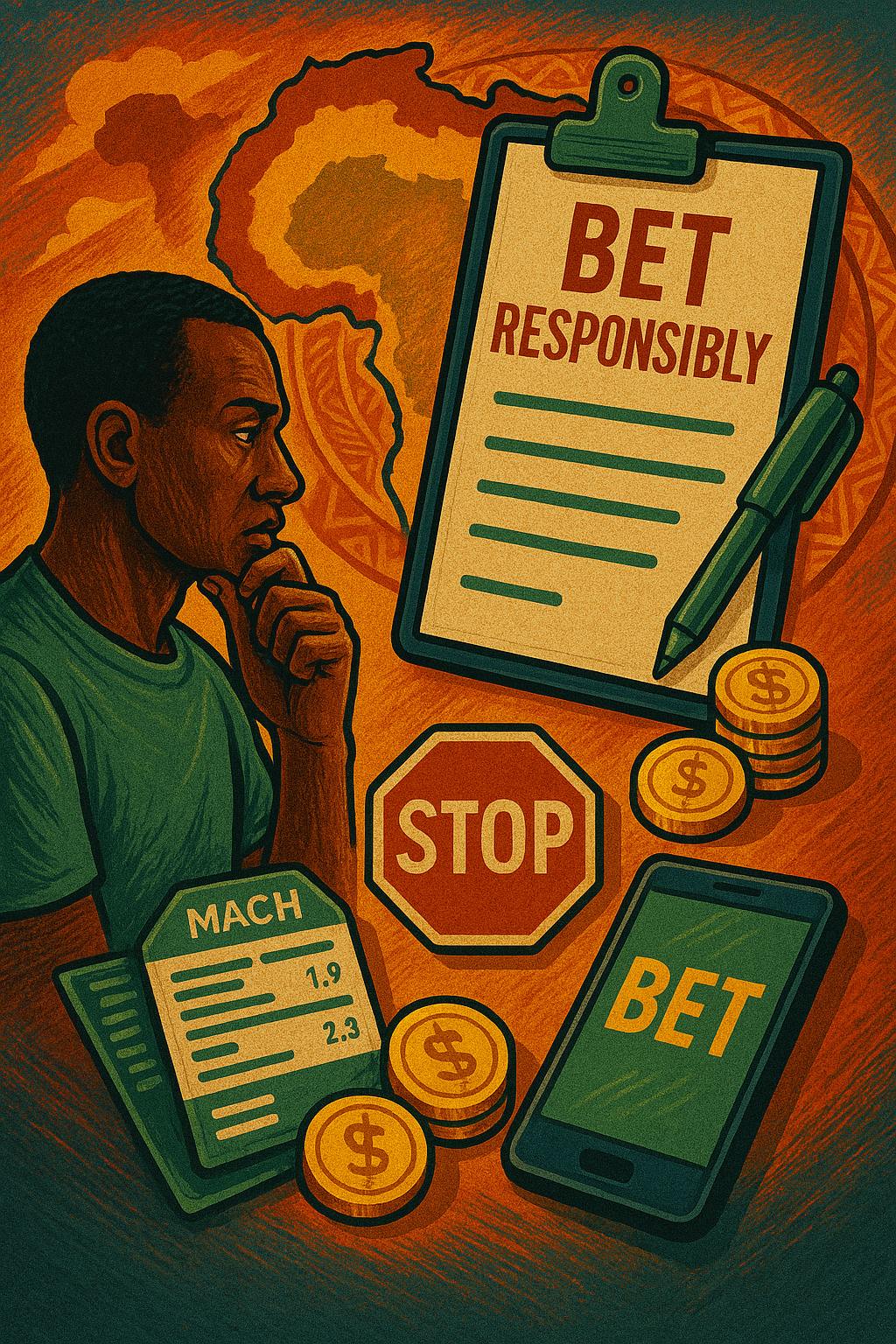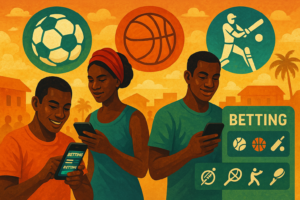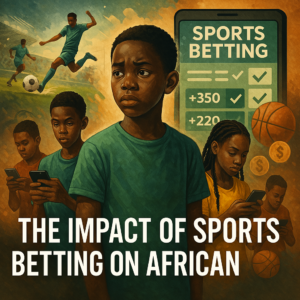
The sports betting landscape across Africa has transformed dramatically over the past decade, with mobile technology making wagering more accessible than ever before. From Lagos to Nairobi, Cape Town to Accra, millions of African punters engage with betting platforms daily, drawn by the excitement, social connection, and potential financial rewards. Yet this growing popularity brings significant challenges, as many bettors struggle to maintain healthy boundaries with their betting activities. Responsible betting isn’t about eliminating the enjoyment from sports wagering—it’s about creating sustainable patterns that preserve the entertainment value while minimizing potential harms. This approach recognizes betting as a recreational activity rather than a reliable income source, emphasizing informed decision-making, emotional awareness, and financial discipline. For African punters navigating diverse betting environments with varying regulatory protections, developing personal responsibility skills becomes particularly crucial. This guide provides practical, culturally-relevant strategies for African bettors seeking to enjoy sports wagering while protecting their financial stability, personal relationships, and psychological wellbeing in contexts where external safeguards may be limited.
Understanding the Psychology Behind Sports Betting
The psychology of sports betting represents a fascinating intersection of entertainment, hope, skill, and chance that powerfully engages cognitive and emotional systems in ways many punters fail to recognize. Understanding these psychological mechanisms provides valuable self-awareness for African bettors seeking to maintain control over their wagering behavior.
The Dopamine Response and Reward Systems
The human brain processes betting outcomes through reward pathways that release dopamine during both anticipation and winning experiences. This neurochemical response creates powerful reinforcement that can override rational decision-making, particularly when betting results are unpredictable. Research indicates that the brain’s response to near-misses—when you almost win—can be nearly as stimulating as actual wins, encouraging continued play despite losses. This explains why many African punters report excitement even when losing narrowly on accumulator bets with multiple selections. Mobile betting platforms have amplified these effects by providing instant gratification through immediate results and quick payment processing, creating continuous reinforcement cycles that traditional retail betting environments moderated through natural interruptions.
Cognitive Biases That Influence Betting Decisions
Several psychological patterns significantly impact betting behavior, often operating below conscious awareness. The illusion of control leads many punters to overestimate their ability to predict sporting outcomes based on their knowledge and analysis, despite the substantial role of chance in determining results. This perception of control explains why sports betting feels fundamentally different from pure gambling activities to many participants. Confirmation bias compounds this issue by causing bettors to disproportionately remember successful predictions while minimizing or explaining away failures, creating distorted perceptions of personal performance. The gambler’s fallacy—believing that previous outcomes influence future independent events—manifests when punters assume a team “must win” after several losses, despite no causal connection between separate matches.
Cultural and Social Dimensions of Betting Psychology
African betting contexts include unique psychological elements shaped by cultural and economic factors. Community betting traditions in many African societies normalize group participation, creating social reinforcement that may override individual caution. The widespread celebration of betting success stories through social media and advertising creates powerful narratives that emphasize exceptional outcomes while minimizing the statistical reality of consistent losses. Economic vulnerability in many communities further complicates these dynamics, as the potential for transformative wins appears particularly compelling against limited alternative opportunities for financial advancement.
Understanding these psychological mechanisms doesn’t diminish betting enjoyment, but rather empowers punters to recognize when automatic patterns might override thoughtful decision-making. Responsible betting requires acknowledging these natural tendencies and implementing conscious strategies to maintain perspective during the emotionally charged experience of sports wagering. By recognizing that betting platforms and environments are specifically designed to maximize engagement through these psychological mechanisms, African punters can develop appropriate counterbalances that preserve betting as an entertainment activity rather than a consuming behavior.
Setting Up a Sustainable Betting Budget
Creating and maintaining a structured betting budget represents perhaps the most fundamental aspect of responsible wagering for African punters. A well-designed budget transforms betting from a potentially chaotic financial risk into a contained recreational expense, providing clear boundaries that preserve financial stability while still allowing for entertainment value.
Effective betting budgeting begins with honest assessment of personal financial circumstances. Before allocating any money to betting activities, responsible punters ensure they’ve met essential obligations including housing, food, utilities, education, family needs, and savings goals. Only genuinely discretionary income—money you can afford to lose without impacting living standards—should be considered available for betting purposes. This principle may seem obvious, but research from several African markets indicates that many bettors, particularly younger participants, regularly violate this fundamental guideline by wagering funds needed for essential expenses or education costs.
Converting conceptual budgeting principles into practical systems requires specific approaches tailored to personal circumstances. Many successful responsible bettors employ the “separate wallet” technique by establishing dedicated betting accounts physically or digitally separated from main financial resources. Mobile money platforms available across most African markets make this approach particularly accessible, allowing punters to transfer only budgeted amounts to betting platforms while maintaining psychological distance from primary financial resources. Pre-commitment strategies—deciding exact betting amounts before sporting events begin—further strengthen budgetary discipline by preventing emotionally-driven decisions during matches.
- Determine your total monthly discretionary income after all essential expenses and savings
- Allocate no more than 5-10% of discretionary funds to betting activities
- Create a separate betting account or mobile wallet specifically for wagering
- Set up automatic transfers of only the budgeted amount to this dedicated account
- Implement strict “no topping up” rules if the budget is depleted before the planned period ends
- Track all betting expenditures accurately rather than relying on memory
- Review betting performance monthly to assess whether budget adjustments are needed
- Consider a “winnings account” separate from both betting funds and regular finances
- Automatically transfer a percentage of any significant wins to savings before continuing betting
Cultural and contextual factors across African betting environments present both challenges and opportunities for budget management. Strong social pressure to participate in group betting activities, particularly during major tournaments, can challenge individual budgetary discipline. Countering these pressures requires developing comfortable ways to maintain personal boundaries while preserving social connections, such as participating with smaller stakes or enjoying matches together without betting on every game. The prevalence of mobile money across many African markets creates opportunities for automated budgeting systems that weren’t previously available in cash-based economies, allowing for technological reinforcement of responsible financial decisions.
A sustainable betting budget ultimately provides more than financial protection—it enhances betting enjoyment by removing the anxiety associated with excessive wagering and potential losses. By transforming betting from an undefined financial risk to a contained recreational expense, budgeting allows punters to focus on the entertainment and social aspects of sports wagering rather than financial pressures. The discipline required initially may seem restrictive, but most responsible bettors report greater satisfaction with their betting experience once clear boundaries are established and maintained.
Recognizing Warning Signs of Problem Gambling
Developing the ability to identify early indicators of problematic betting behavior represents a crucial self-protection skill for African punters. By recognizing these warning signs in their earliest stages, bettors can implement corrective strategies before gambling patterns escalate into more serious problems affecting financial stability, relationships, and psychological wellbeing.
Problem gambling typically develops gradually rather than suddenly, with subtle behavioral and psychological changes appearing before more obvious consequences emerge. Emotional betting—wagering when feeling stressed, depressed, anxious, or angry—often serves as an early indicator that betting has shifted from entertainment to emotional management. Similarly, spending increasing time thinking about betting, researching odds, or reviewing past bets suggests growing preoccupation that may signal problematic engagement. Changes in betting patterns, particularly escalating stake sizes to recapture excitement or recover losses, reflect another common early warning sign recognized by gambling treatment specialists across multiple African countries.
The social dimensions of problem gambling manifest through observable changes in relationships and responsibilities. Concealing betting activities from family members or friends typically indicates awareness that wagering has exceeded acceptable levels. Borrowing money specifically for betting purposes, particularly from informal lenders charging excessive interest rates—a growing concern in several East African betting markets—represents a significant warning sign requiring immediate attention. Academic or professional performance declines resulting from betting distraction or sleep disruption for late-night events similarly reflect problematic patterns that compromise core life priorities.
Financial indicators of developing problems include:
- Regularly exceeding predetermined betting budgets despite intentions to maintain limits
- Using funds designated for essentials including food, housing, utilities or education for betting
- Making increasingly desperate attempts to “chase losses” through larger or riskier bets after losing
- Repeatedly withdrawing money from ATMs or mobile accounts specifically for unexpected betting
- Selling personal possessions to generate betting funds when other resources are depleted
Psychological warning signs deserve particular attention, as they often precede more visible behavioral changes. Experiencing significant emotional distress when unable to bet suggests dependency patterns requiring intervention. Feeling compelled to bet until all available funds are exhausted, rather than stopping according to predetermined limits, indicates loss of control characteristic of problematic gambling. Believing that a major win would solve financial problems reflects a cognitive distortion commonly associated with gambling disorders across diverse cultural contexts.
These warning signs manifest differently across African betting contexts, with unique regional and cultural dimensions influencing their expression. The prevalence of mobile betting in many African markets creates distinctive patterns, with problematic users often exhibiting excessive overnight betting on international events or virtual games when domestic matches are unavailable. The strong social component of betting in many African communities means that isolation from traditional social activities to focus on individual betting often indicates problematic shifts.
Recognizing these indicators in oneself requires significant self-awareness and honesty—qualities that become increasingly difficult to maintain as gambling problems develop. Many responsible punters establish periodic self-assessment practices or engage trusted friends to provide honest feedback about their betting patterns. Various self-assessment tools adapted for African betting contexts are available through responsible gambling organizations, offering structured frameworks for evaluating personal betting behaviors against established problem indicators.
Practical Tools and Strategies for Responsible Betting
Converting responsible betting principles into daily practice requires specific tools and strategies adapted to the realities of African betting environments. These practical approaches provide concrete methods for maintaining control over betting activities while preserving their entertainment value.
Self-limiting tools represent some of the most effective mechanisms for maintaining responsible betting boundaries. Deposit limits—predetermined maximum amounts that can be transferred to betting accounts within specific timeframes—create structural constraints that protect against impulsive decisions during emotional moments. While some regulated African betting platforms offer these features through their interfaces, many markets lack such built-in protections. In these contexts, punters can create personal systems using mobile money transfer limits or dedicated betting accounts with specified balance caps. Time-based controls serve as complementary protection mechanisms, with scheduled betting sessions replacing open-ended engagement that can expand to consume excessive time. Many responsible African bettors report success with designated betting days or specific time windows that contain their wagering activities within predetermined boundaries.
Strategic betting selection provides another powerful approach to responsible participation. Single-match betting typically offers more favorable odds than accumulator wagers that require multiple correct predictions, despite the latter’s popularity across African betting markets. By focusing primarily on single matches with higher probabilities, punters can extend their betting entertainment while minimizing rapid losses associated with less predictable accumulator outcomes. Similarly, establishing fixed stake sizes based on predetermined percentages of the total betting budget—typically 1-5% per wager—prevents the progressive stake escalation common in problematic gambling patterns.
- Use time-tracking applications to monitor hours spent on betting platforms and research
- Establish “cooling-off periods” after significant losses before placing new bets
- Create automatic reminders of responsible betting principles that appear before wagering sessions
- Utilize “bookmarking” techniques to separate betting analysis from emotional team support
- Implement fact-checking practices for betting tips and predictions received through social networks
- Maintain detailed betting journals recording outcomes, emotions, and contextual factors
- Develop personal “red lines” that trigger mandatory breaks if crossed
- Practice visualization techniques focusing on potential negative outcomes of excessive betting
- Engage trusted friends in accountability partnerships providing external perspective
Technological tools offer particularly promising approaches in African markets where mobile betting dominates. Screen time management applications can monitor and limit engagement with betting platforms. Specialized budgeting applications synchronize with mobile money services to track betting expenditures against predetermined limits. Some forward-thinking African betting operators have begun implementing responsible gambling features within their own platforms, including reality checks that display time spent betting, mandatory breaks after extended sessions, and visible loss counters that maintain financial awareness.
The social dimensions of responsible betting deserve particular attention in African contexts where group wagering remains common. Establishing clear personal limits before participating in collective betting activities helps maintain individual responsibility within social settings. Identifying and connecting with like-minded bettors who prioritize responsible participation creates supportive environments that reinforce healthy patterns rather than encouraging excessive wagering. Community-based betting clubs with explicit responsible gambling principles have emerged in several countries as alternatives to commercially-driven betting environments, emphasizing entertainment and social connection over monetary outcomes.
By implementing combinations of these practical tools and strategies, African punters can create personalized responsible betting systems appropriate for their specific circumstances and the particular challenges of their local betting environments. The most effective approaches typically combine multiple complementary methods rather than relying on single strategies, creating layered protections that maintain betting as an enjoyable recreational activity rather than a source of financial or psychological distress.
Navigating Regional Betting Platforms Safely
The diverse betting landscape across Africa presents unique challenges for punters seeking responsible engagement, with regulatory protections, platform features, and betting products varying dramatically between markets and operators. Developing the knowledge and skills to navigate these environments safely represents a crucial component of responsible betting practice for African punters.
Evaluating Platform Legitimacy and Responsible Gambling Features
Selecting appropriate betting platforms forms the foundation of safe participation. Licensed operators adhering to local regulatory requirements generally provide greater consumer protections than unregulated alternatives, though the effectiveness of these protections varies significantly between jurisdictions. Kenya’s regulated operators must implement specific responsible gambling measures including deposit limits and self-exclusion options, while Nigerian platforms face varying requirements depending on state licensing. South African operators typically offer the continent’s most comprehensive responsible gambling tools, reflective of that market’s mature regulatory framework. When assessing platforms, responsible punters should examine available safeguards including optional deposit limits, reality checks, temporary account freezes, and self-exclusion features. The presence of responsible gambling information, problem gambling assessment tools, and support service referrals further indicates operator commitment to customer protection.
Understanding Regional Betting Products and Risk Profiles
Different betting products present varying risk profiles that informed punters should understand when making wagering choices. Virtual games—computerized simulations offering rapid betting cycles—have proliferated across many African markets and present particularly high-risk profiles due to their continuous availability and accelerated play patterns. Several studies from Nigerian and Kenyan markets indicate these products correlate strongly with problematic gambling behavior compared to traditional sports betting. Similarly, in-play betting (wagering during matches) creates heightened emotional engagement that can override rational decision-making. Understanding these risk differentials allows punters to make informed choices about appropriate betting products based on their personal risk factors and responsible gambling goals.
Mobile Money Integration and Financial Protections
The integration between mobile money systems and betting platforms presents both opportunities and challenges for responsible betting across many African markets. This connection enables unprecedented convenience but can also reduce psychological friction between decision and action, potentially undermining thoughtful wagering choices. Responsible punters can implement personal protection strategies within these systems, including dedicated betting mobile wallets separated from primary financial resources, scheduled transfers replacing spontaneous deposits, and manual rather than automated payment linkages that require deliberate action for each transaction. Some mobile money providers have begun implementing gambling-specific features including transaction categorization and optional betting-specific limits, though availability varies significantly between markets.
Cultural Context and Social Pressure Management
Navigating the social dimensions of regional betting environments requires specific strategies adapted to cultural contexts. Football viewing centers across West Africa often feature intense peer pressure toward participation, particularly during major tournaments. Developing comfortable responses to betting invitations, prepared strategies for maintaining personal limits within group settings, and identifying like-minded peers who respect responsible approaches helps maintain individual boundaries despite social influences. The strong association between sports fandom and betting across many African markets creates additional challenges requiring conscious separation of team support from wagering decisions—a distinction many successful responsible bettors reinforce through deliberate betting routines separated from match-viewing experiences.
Cross-Border Betting Considerations
The increasing availability of international betting platforms to African punters through VPNs and alternative payment methods creates additional complexity. While these platforms sometimes offer competitive odds, they typically operate without local regulatory oversight, providing minimal consumer protections specific to African contexts. Responsible cross-border betting requires additional due diligence including researching platform licensing in home jurisdictions, understanding dispute resolution mechanisms, and verifying withdrawal reliability through community reviews. The lack of localized responsible gambling tools on many international platforms necessitates greater personal responsibility and self-implementation of protective measures.
By developing region-specific knowledge and implementing appropriate navigation strategies, African punters can engage more safely with available betting opportunities while minimizing the risks associated with less protected environments. This informed approach transforms responsible betting from abstract principles into practical daily decisions aligned with individual wellbeing and regional realities.
Building a Healthier Relationship with Sports and Betting
Developing a balanced, sustainable relationship with sports betting requires more than implementing practical controls—it involves cultivating broader perspectives and alternative sources of fulfillment that contextualize betting as just one of many recreational activities rather than a central life focus. This holistic approach helps African punters maintain betting as an enjoyable complementary activity while ensuring it doesn’t overshadow more fundamental aspects of wellbeing and fulfillment.
The relationship between sports appreciation and betting deserves particular attention, as the increasing integration of these experiences can fundamentally alter how fans engage with athletic competition. Many long-term sports fans report that excessive betting focus can undermine their genuine enjoyment of the games, transforming what was once pure appreciation into financial anxiety centered around betting outcomes. Responsible approaches involve intentionally preserving betting-free sports experiences—deliberately watching certain matches purely as a fan without wagering involvement. This separation helps maintain the intrinsic enjoyment of sports as athletic competition rather than merely betting opportunities. Similarly, diversifying sports interests beyond heavily-marketed betting events helps preserve broader appreciation that transcends gambling considerations.
Balancing betting with alternative recreational activities proves equally important for maintaining healthy perspective. When betting becomes the primary leisure activity, its psychological significance typically increases to potentially problematic levels. Deliberately cultivating diverse recreational interests—whether social, creative, physical, or intellectual—creates natural counterbalances that prevent betting from assuming excessive importance. This diversification appears particularly valuable in contexts where betting advertising and social normalization might otherwise create impressions of betting as the default entertainment option. Many African communities offer rich traditional games, sports, and social activities that provide engaging alternatives requiring minimal financial resources.
Financial literacy and alternative wealth-building approaches represent another crucial dimension of healthy betting relationships. One concerning pattern observed across multiple African betting markets involves young people viewing betting as a legitimate economic strategy rather than recreational activity with negative expected returns. Addressing this perspective requires both education about betting mathematics and exposure to genuine wealth-building alternatives appropriate for various economic circumstances. Microentrepreneurship opportunities, skill development programs, community saving groups, and formal financial services all offer more sustainable approaches to economic advancement that can rightfully displace betting from consideration as a financial strategy.
Digital wellbeing practices increasingly complement responsible betting approaches as mobile platforms dominate African betting markets. Techniques for managing screen time, implementing digital boundaries, and maintaining technology-free periods help prevent the continuous engagement that betting apps specifically design to encourage. These broader digital wellness strategies naturally support responsible betting by creating space for reflection, alternative activities, and perspective maintenance that continuous digital immersion typically undermines.
The journey toward healthier relationships with betting often benefits from community connection rather than isolation. Peer support groups specifically focused on responsible betting have emerged in several African markets, offering spaces for shared experiences, accountability, and collective wisdom about maintaining balanced engagement. Unlike addiction recovery models assuming complete cessation, these communities embrace the possibility of continued recreational betting within appropriate boundaries, providing mutual support for maintaining moderation rather than abstinence.
Ultimately, building healthier relationships with sports betting involves recognizing its proper place within a well-rounded life—as an occasional recreational activity rather than financial strategy, emotional management tool, or primary identity source. This perspective allows African punters to enjoy the legitimate entertainment value betting offers while preventing its expansion into domains better served by more appropriate activities and approaches. By contextualizing betting within broader wellbeing frameworks, punters can maintain its benefits while minimizing potential harms, creating sustainable patterns aligned with their overall life goals and values.





